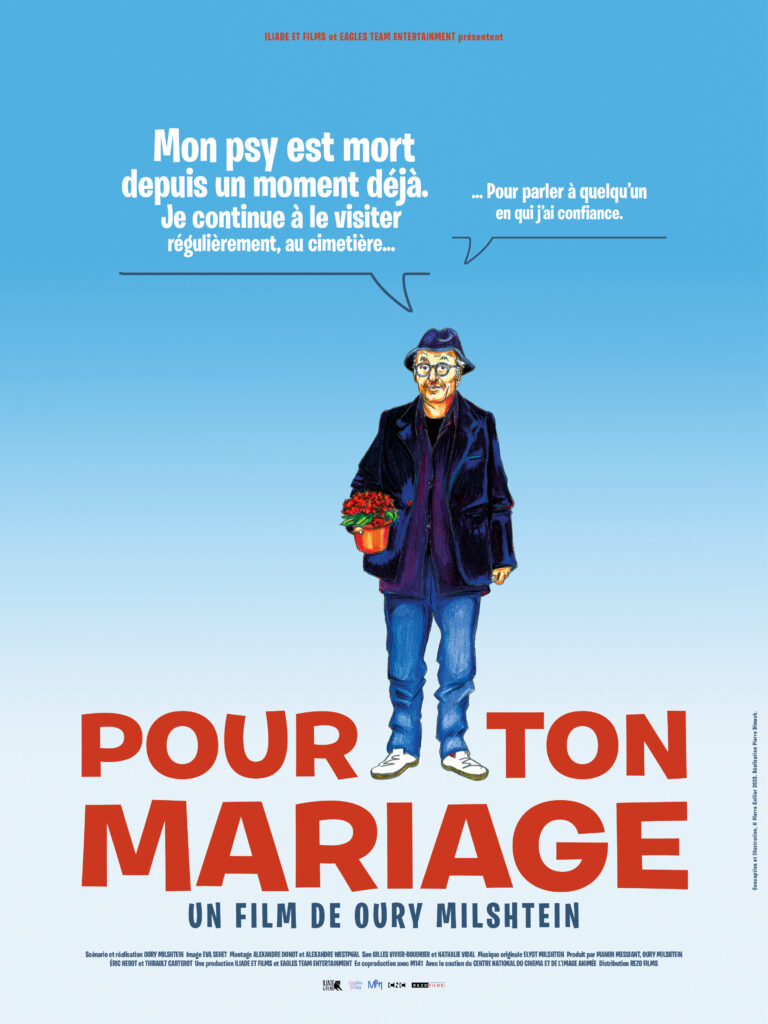Your cart is currently empty!
DOCUMENTARY, REVIEW
“Wedding Blues” by Oury Milshtein: Day of Celebration
Film review by TROIS COULEURS, a French magazine on “Wedding Blues” Directed by Oury Milshtein
Below is the full review Translated from French to English:
[REVIEW] Oury Milshtein, both in front of and behind the camera, retraces the story of his life and those close to him in a family film with the feel of a deeply moving and extremely funny, even comical, personal journal.
But who is Oury Milshtein? Reading his AlloCiné profile, we discover that he is a producer who has worked with Cédric Kahn, Arnaud Desplechin, and even Alex Lutz. In his film, we see him alongside Agnès Varda. However, he prefers to present himself as a filmmaker with thwarted desires, incapable of finishing what he starts. It took the delightfully burlesque antihero 66 years to make his first feature film.
With “Pour ton mariage,” he assembles images from his life, those that should have been films, the images of his father, the kibbutzim of his adolescence, his surreal marriage to Jocya Macias, Enrico Macias’s daughter. Before our eyes, his story unfolds, along with that of his children and ex-wives. These are fragments of intimacy never curled up within themselves but, on the contrary, open to shared universality.
Without warning, the film tears itself apart (formally, emotionally) when it articulates, with contained sadness and a shield-smile in elegance, the beating heart, the reason for its existence: young Leah, who, like her father, takes the camera to document her illness, filming her final moments – images incorporated into the entirety of a film resembling an eternal embrace.
Film Accolades & Review
“In a joyous and moving elegy, Wedding Blues opens itself to contradictions and disappearances.” – Les Cahiers du Cinéma, Jean-Marie Samocki
“Wedding Blues is orchestrated around the different legacies that are passed around between every generation, as parents and children interact with one another – whereas the patriarch stifles those around him, as Enrico Macias has unknowingly done. Thanks to this, the film never becomes a way for different generations to settle the score – the arguments that happen around the family table are first and foremost a way to continue writing and building the ties that bind the family together. This is another of the film’s strengths : it seems prodigiously and in all modesty created in situ, without the pretense of becoming an oeuvre, and that is what allows it to become an intermediary between all of us to share meaning beyond the family in which it was born.” – Blog Médiapart, Cédric Lépine
